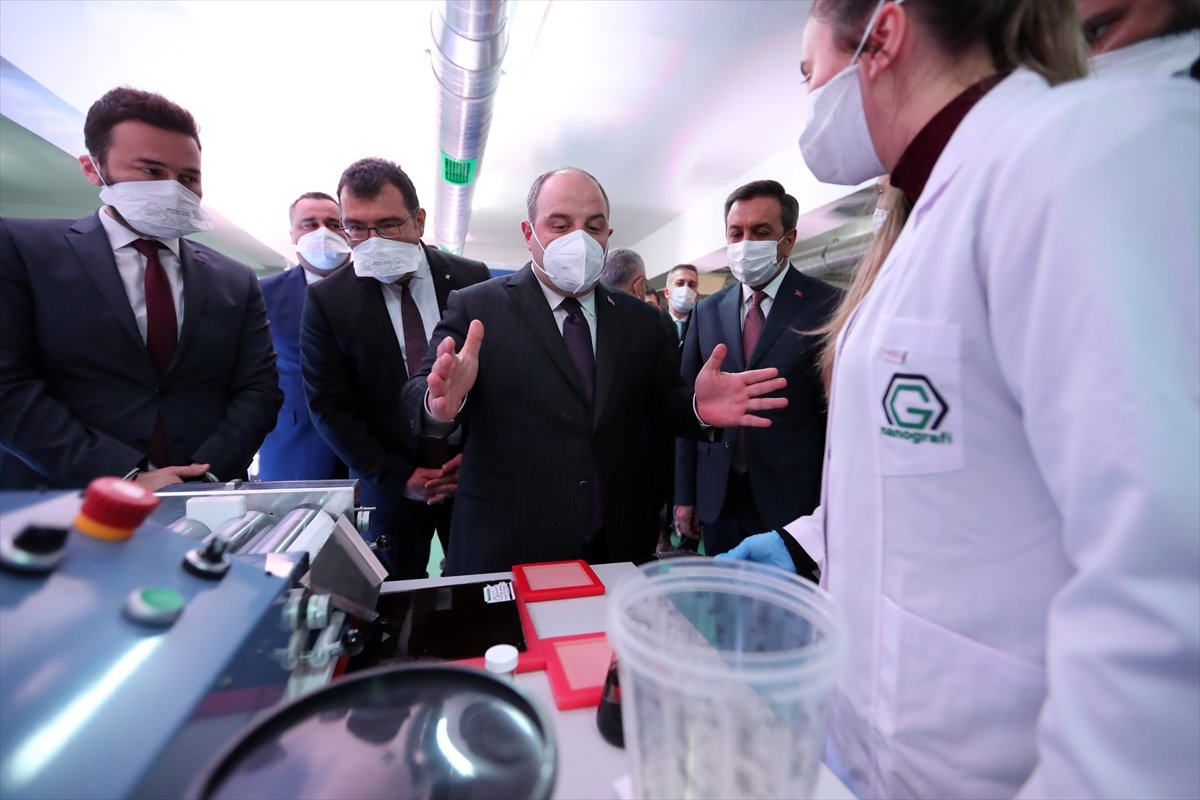
Turkish scientists working with nanotechnology firm Nanografi are developing the country’s first intranasal coronavirus vaccine, the industry and technology minister said on Tuesday.
Speaking at the opening ceremony of Nanografi’s new graphene production plant in the capital Ankara, Mustafa Varank said the nasal spray is expected to be more effective.
The intranasal vaccine will boost Turkey’s efforts in its fight against the coronavirus, Varank said, adding the vaccine could be “remodeled” in case of virus mutations.

Phase-1 human trials will begin shortly for the first Turkish-made intranasal vaccine candidate as its preclinical stages have successfully completed, he said.
“After all clinical stages successfully completed, we aim to launch administering intranasal vaccine this year,” Varank stressed.
Pointing out the obstacles to commercial graphene adoption, Varank said Turkey will be one of 10 countries which can produce graphene at large scale thanks to the new investment.
Graphene, which is made of a layer of tightly-packed carbon, is light, 200 times stronger than steel and more conductive than copper.

Purely carbon-based graphene is one of the most critical components of nanotechnology with single-atom-thickness.
Varank stressed that graphene will help the production of longer-lasting materials, ultra-fast rechargeable batteries, faster and lighter aircraft, bionic devices that can connect to neurons in the body.
“Bioelectronic medical technologies that provide real-time treatment by reading and changing body electricity will be developed, and corrosion, heating and transmission problems will be solved,” he added.

Citing the latest survey from the Graphene Council, Varank noted that the cost of the material, the mass production capability, standard and certification are the most prominent obstacles to graphene adoption.
The facility, which will produce graphene at low cost and at industrial scale with environmental-friendly methods, will be one of the largest in the world thanks to its capacity.












